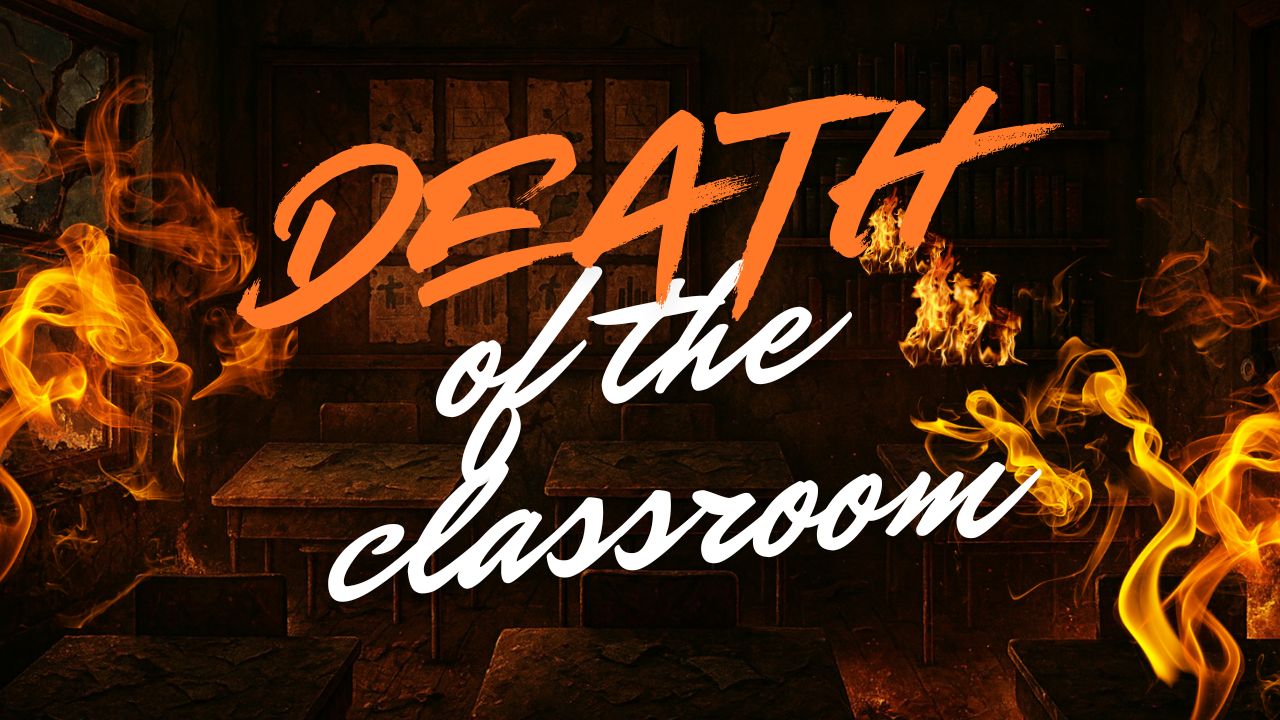
The Death of the Classroom
Sometimes, there are moments in history where there is no turning back.
October 27, 2025
Education is broken. College tuition and fees have risen more than 150% since 2000, but the product is not getting any better. 7 in 10 Americans think that US higher education is going in the wrong direction. This has been a trend for a long time and there are attempts at reversing it, but sometimes, there are moments in history where there is no turning back.
With the advent of AI, there is now a real need for change in the current educational model. The problem with the current educational model is that it pushes students to directly compete with AI by forcing students to learn the same way AI does. In school, everyone has the same goal which is to reproduce information with high fidelity. In order to do so, everyone keeps repeating the same information over and over, until they have it memorized.
This is essentially how AI learns. The way AI learns is by having it train on labeled data. What this means is that the AI will be asked to reliably reproduce the answer. The way it does this is by modifying its weights or parameters such that it gives the right output most of the time.
Another problem with the current educational model is that it doesn't take into account that AI will be constantly applying pressure to upskill. The reason for this is because any thing that is repeatable such as a job will be able to be measured. If it can be measured, then data can be collected and given to the AI to memorize. Even though this process may take awhile, the assumption that a job won't change in one's lifetime is gone because automation is always going to be around the corner.
That said, just because AI can reproduce patterns doesn't mean that these patterns will automatically generalize. What this means is that AI is more like the printing press of automation, and we've already seen how automation affects the economy. It drives the need for more expertise because there needs to be someone watching over the automation and jumping in when need be. This is evident with the earliest application of AI which is vibe coding. The person that can better take advantage of vibe coding is the person with the background knowledge that can jump in when the AI fails.
So then, what the education model should be doing is pushing students towards building expertise, but this is prevented in the current structure. The way that it is currently structured is that it provides everyone with ready made frameworks that compartmentalizes knowledge for well defined problems. Not only does this model leave students unprepared for the messy reality that experts deal with, but it also instills a reductive framework that is difficult to remove and leads to oversimplification and overgeneralization. This gets reinforced with testing for recall which assesses for association and exposure to the knowledge rather than understanding.
If education is going to produce genuine expertise, it needs a new goal: understanding, not just exposure. That's what we're building at Idealite. We're creating a study system designed from the ground up around understanding. Want to help us shape it? Join the waitlist and share your feedback.